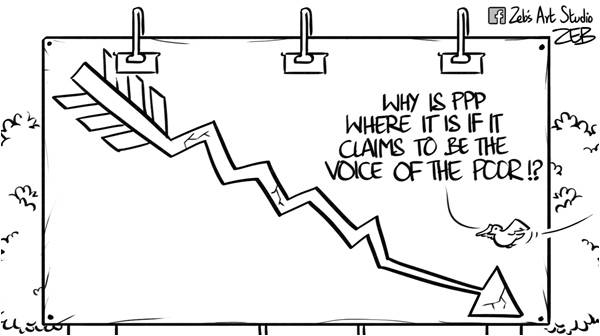
The mighty have fallen
Sir,
On Sunday we saw Bilawal Bhutto take to the stage on the death anniversary of his mother, former premier Benazir Bhutto, and go through the usual moves of trying to fire up the base for the Pakistan Peoples Party. Bilawal continues to talk a big talk, but the fact remains that the Sindh government, led by his party, has simply not delivered in the province. Whether its people dying of malnutrition in Thar, or the utter chaos that had gripped Karachi until recently, it seems the PPP refuses to learn how to govern. Perhaps, it’s incompetence, perhaps it’s mixed up priorities, the fact remains that the PPP could in future lose in Sindh much like it did in Punjab. In Punjab, it is was astounding to see the PPP secure Rahim Yar Khan in the local government elections, but the fact that the party holds one district out of 36 in the province does not give one too much hope. The party’s leadership in the Punjab is in tatters. In a news item published in a newspaper, it was stated that besides Makhdoom Ahmed Mahmood (the former Punjab governor), no one in the Punjab is willing to revamp the party’s base.
To conclude, the PPP is in shambles. In order to mount a comeback the party needs to return to its roots of working for the poor. The party needs to rediscover the slogan the roti, kapra aur makaan, and needs to focus more on delivering as opposed to promising. Also, the party really needs to rid itself of Qaim Ali Shah. The man brings nothing to the table and has been at the helm of the government that has set the standard of how not to govern.
Bilal Anwar,
Lahore.

Corruption all around
Sir,
Why should every government, be it of the PPP, Musharraf or PML-N, prefer to appoint individuals accused of irregularities, who have managed to evade accountability because of weak prosecution and judicial system, to positions of power? Although the constitutional oath binds public officeholders to make appointments strictly on merit, yet every government has violated this pledge by appointing people who would not stand up to a judicial review. Pakistan, a country on the verge of an economic collapse, facing massive debt and flight of capital, cannot afford such criminal neglect by design. Should it not raise eyebrows when an individual such as Shujaat Azeem, with a clear conflict of interest and previously court marshaled for indiscipline, offers to serve, pro bono, in a department with which he conducts business?
It seems that the ability to defraud the state is no longer a vice, and is considered to be merit in the views of those who have been at the helm in Pakistan. How else could such men with criminal history be allowed to hold key executive assignments. The Supreme Court of Pakistan has clearly given a verdict that dual nationals should not hold important posts in state-owned enterprises, yet every government considers it proper to do otherwise.
Ali Malik,
Lahore.
Alarming accusation
Sir,
The Shuhada Forum is a group of representatives from 43 families of those who were killed in the Peshawar attack. Shuhada Forum President Fazal Khan, along with other parents, recently protested when Imran Khan was speaking at a ceremony related to the Peshawar attack.
Imran Khan welcomed Fazal Khan on stage and gave him proper time to give his point of view. Mr Fazal Khan, in the past and also this time, demanded the federal and provincial governments to form a special judicial commission to investigate the Army Public School attack. He said that 17-18 security personnel were always present in the school, but on the day of the attack, only two security personnel were present. His claim is alarming and should be investigated.
This demand should be addressed by all the authorities concerned that are directly or indirectly link with this incident.
Mubashir Mahmood.
Karachi.
Rupee will recover
Sir,
After receiving some unexpected shockwaves due to speculative attacks in the recent past, the Pakistan Rupee has recovered some of the recent losses and appears to be stable at around 104 to a US dollar in the interbank market. The speculators who have been betting against the Rupee are missing some bright spots on the country’s economic horizon, like increasing forex reserves, falling energy costs, increasing home remittances, positive growth outlook and improving balance of payment. On the political front too, there is apparent stability at last. These foregoing factors are contributing to the Rupee’s stability. I believe Pakistan’s economy is improving, which will keep currency stable and strong in the years to come. A strong currency is in the interest of Pakistan.
Ejaz Ahmad Magoon,
Lahore.
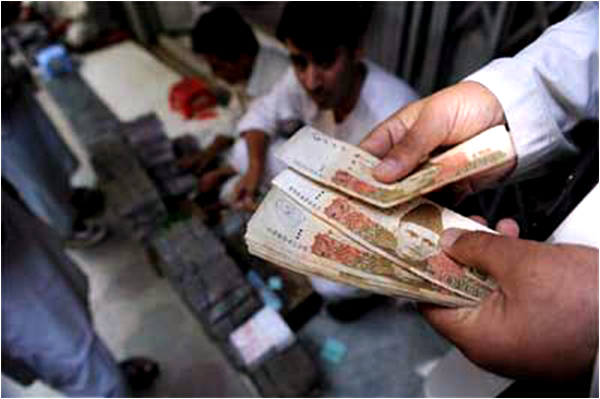
Remembering APS
Sir,
A year has passed since December 16, the fateful day when a group of vicious terrorists attacked and ruthlessly killed 141 innocent souls including 132 absolutely innocuous children of the Army Public School Peshawar. Those men, women and children who were shamelessly massacred on this fateful day didn’t know what fate had in store for them on this tragic day.
Unambiguously, the tragic happening at APS Peshawar on December 16 has no parallel in recent history. It left not only the next to kin of those who lost their valuable lives in the catastrophe, but the entire Pakistani nation and the whole world in a state of shock. Even today, after a lapse of one year, when we are reminded of the martyrs of APS Peshawar, our hearts profusely bleed and our eyes shed tears of sorrow. It compels us to conclude that the perpetrators of this heinous crime couldn’t have been human beings. They were a group of vicious and senseless people who took the lives of totally harmless souls for no rhyme or reason.
It may not be appropriate to say that the APS Peshawar tragedy also had a positive consequence to it, but the fact of the matter is, it did. The sacrifices made by the martyrs of APS brought a divided nation together on one platform. It, in fact, brought a drastic change in the thoughts and attitude of all political factions of the country in particular and society in general. It made the leaders of every political party converge at one point, regardless of their political wrangling and differences, and vociferously condemn, in the strongest terms, the act of brutality committed by the terrorists at APS. Not only this, it also compelled the armed forces of the country and the entire nation to renew its pledge to fight terrorists with greater conviction and uproot the menace of terrorism from the soil of this country for all times to come. We undoubtedly had to pay a huge price, sacrificed 141valuable lives, to arrive at this moment in time, but we did.
No one could agree more with Prime Minister Nawaz Sharif, who, while addressing a mammoth assembly organised in Peshawar on December 16, 2015 to mark the first anniversary of the APS massacre, said “we will avenge every drop of blood and nobody will be allowed, under any circumstances, to play with country’s peace”. Terming the APS attack ‘an incident that shook the entire nation’, the PM announced December 16 as the day of ‘national educational resolve’. He also announced the construction of APS Shuhada University to acknowledge the unparalleled sacrifices of the innocent students of APS. The PM has also approved a proposal of naming 122 government schools of Islamabad after the martyrs of APS. Whatever has been announced by the PM is truly praiseworthy. Undeniably, however, this is the least we could do for the martyrs of APS and their families.
Fazal Elahi,
Islamabad.
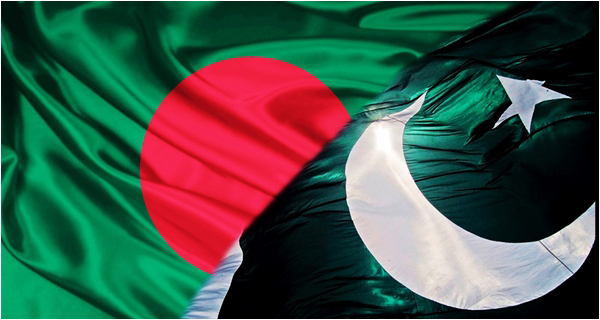
Pakistan and Bangladesh
Sir,
The independence of two territorial Muslim communities was the aim of the Muslim League, as per the Lahore Resolution 1940. It was demanded that ‘geographically contiguous units’ demarcated into regions of Muslim majority in the North Western and North Eastern zones of India should constitute ‘Independent States’. The revised demand as per the Delhi Resolution 1946 was an independent state ‘comprising Bengal and Assam in the North-East zone and the Punjab, North-West Frontier Province, Sind and Baluchistan in the North-West zone’ of India. Soon after, the British government proposed a confederation of three units comprising the North-West, North-East and rest of the British India. This plan was accepted by the Muslim League and the National Congress but could not be implemented due to the negative attitude of the Congress. Resultantly, British India was divided in 1947 into Pakistan and India. The option was given to princely rulers for accession to either country or become independent.
The emergence of Pakistan, comprising two far-flung main lands, could be compared with the birth of twins. There were extraordinary challenges of governance due to lack of geographical contiguity. This situation was extremely disadvantageous for the people of the eastern region, as the capital was in the western region. Soon after the 1965 war, the Bengali nationalist party demanded a confederation of two units. This genuine demand was rejected by military and civil leaders of the western region. Many mixed up the issue of autonomy for the eastern regional province with western sub-regional provinces. Resultantly, in 1971, the eastern region seceded as Bangladesh.
The western region retained the nomenclature of Pakistan. This name was coined in 1933 by Rahmat Ali for carving a north-western country out of India. Earlier, it was observed by Iqbal during the Muslim League Session in 1930 that self-government with or without the British Empire, the formation of a “North- West Indian Muslim State appears to me the final destiny of the Muslims, at least of North-West India”. For this purpose, he proposed an amalgamation of the Punjab, excluding non-Muslim majority areas, North-West Frontier Province, Sind and Baluchistan.
Kh Taraq Jazy,
Lahore.
PIA human resources
Sir,
PIA’s decline under Rafique Saigol and Nur Khan can be judged from the quality and professional qualifications of their executives and those under whose helm this national asset was placed in 2008. What can you expect other than systemic destruction of human resources when an under-Intermediate is appointed as the director administration, fake degree holders and under graduates as GM, DGM etc., reporting to an O’ Level MD. Which organisation would directly recruit a controversial clearing agent, accused of irregularities in PIA Duty Free Shops as a senior executive heading Procurement & Stores, Marketing and ultimately promoted as DMD? How could a Statutory State Owned Enterprise employ fake degree holders as junior executives?
It is not just surplus and ghost employees that are an issue in the airline; deterioration in quality of human resources, lack of ethics and integrity in middle and higher management of PIA remain a concern. Revenue leakage and defaults by travel and cargo agents are a routine because of nexus with corrupt executives. This is an organisation where those holding singular Pakistani passports are discriminated against on some pretext or another, and those holding foreign passports are preferred for foreign postings and promotions. Organised pilferage and kickbacks in procurement of substandard spare parts and flight kitchen items and leasing of aircraft, along with connivance in smuggling of foreign currency for money laundering, are predominant.
G. Zaman
Lahore.
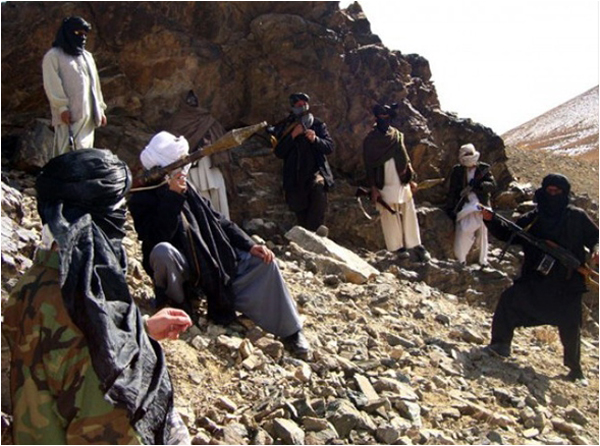
This isn’t democracy
Sir,
In accordance with the constitution of Pakistan, democratic norms and Islamic jurisprudence, all men are equal before law. It is laws that should prevail over individuals, irrespective of their social status and political affiliations, and not vice versa. When public officeholders violate their constitutional oaths and indulge in corruption and white crimes, they deprive the state of vital funds that could have been invested in education, health, provision of basic necessities to most deprived sections of population and enforcement of law and order. The conditional powers given by the Sindh government to Rangers are not only a violation of basic laws of equality before law, but will fail to eradicate the cancer of terrorism. The solution calls for supremacy of law, not military takeovers, which have failed to deliver.
Any organised armed militia engaged in combat requires ammunition, training and backup medical facilities for the injured, all of which require massive funding. The unfortunate reality is that a criminal economy, of which few private militias, some of them affiliated with political parties, is also source exploited by terrorists to raise funds. It is this failure of the state to invest in socioeconomic development and the state’s abdication of providing subsidised education, along with our involvement under Zia and Musharraf in conflicts in Afghanistan, and compromising state sovereignty by offering our territory to foreign fighters, which have led to the cancer of terrorism, which today poses the biggest threat to national security.
The Zarb-e-Azb operation, in isolation, will fail, if funding of terrorism is not cut off and factors that contribute to facilitate the most deprived and wrongly indoctrinated people by few religious seminaries involved in creating potential recruits for terrorists are not wiped out. Selective application of law and undue involvement of political executives in obligatory duties of law enforcement and paramilitary forces deputed for enforcement of writ of law, will only help terrorists to seek refuge under these umbrellas.
Tariq Ali,
Lahore.
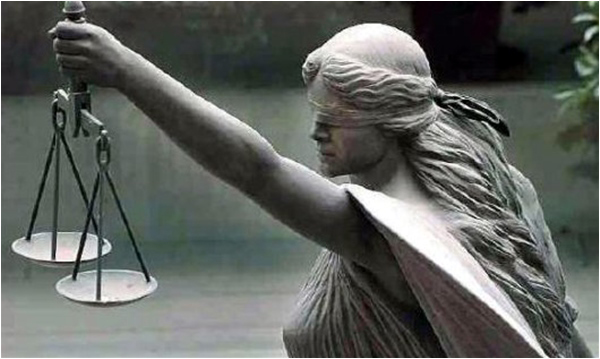
Travesty of justice
Sir,
When constitutional public officeholders betray their constitutional oath to defend and uphold rule of law, they do not serve democracy. Getting elected does not give a right to any officeholder to violate laws and betray constitutional oaths taken to be the custodian of the law and national exchequer, nor does it grant them immunity from prosecution against willful abuse of power.
Can anybody justify why the federal government went soft in prosecuting Ayaan Ali when she was caught smuggling red-handed? The shameful manner in which the Sindh government is trying to shield Dr Asim, involved in numerous offences, including money laundering, land grabbing, massive corruption and facilitating criminals, is an outright betrayal of the constitution. It is not just politicians but also paid civil and uniformed bureaucracy, who are involved in this ugly mockery of law and justice. If we are to go by judicial verdicts, where not a single citizen or khaki has been prosecuted in a high profile financial or criminal offence, nor involved in ordering target killings. Have we forgotten when Musharraf raised his fists on 12 May 2007, when he implied the massacre in Karachi as a show of his power?
Either we have a rule of law, or we don’t. When an elected Sindh government takes a stand that it is not the mandate of the Rangers to tackle corruption, even if this qualifies as terror financing, then are we to assume that it is the self-assumed mandate of that government to protect corruption?
Malik Ali,
Lahore.
The Friday Times, Plot No 52-53, N-Block, Main Guru Mangat Road, Gulberg II, Lahore, Pakistan. 042.35779186; Fax: 042.35779186, email: tft@thefridaytimes.com
*Letters must carry addresses and phone numbers
*We ask you to restrict your comments to 300 words.
Cartoons by Zeb's Art Studio

